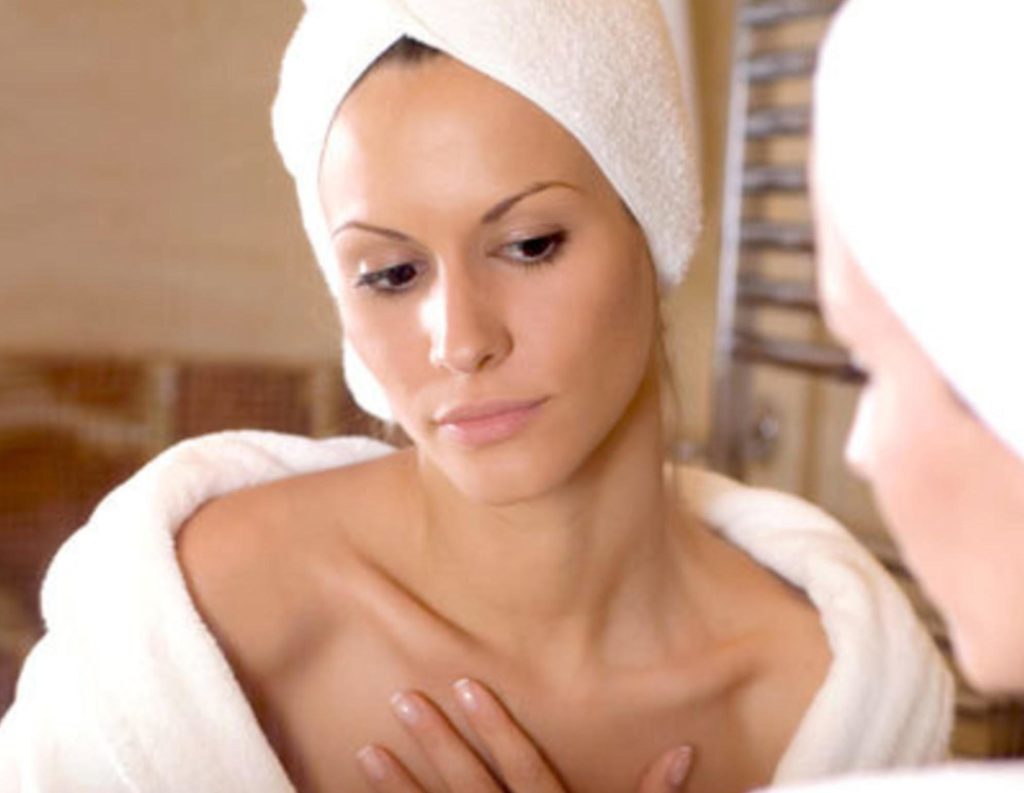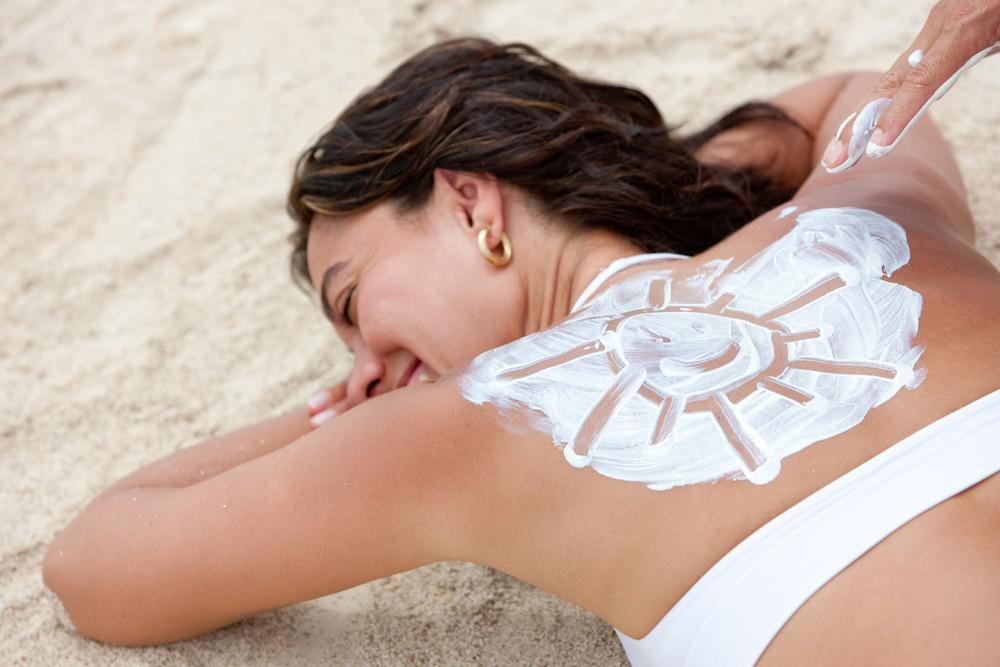
When it comes to skin cancers such as melanoma, basal cell carcinoma and squamous cell carcinoma, early detection is so very important. They are increasingly treatable, which is great, but early diagnosis can minimise the amount and severity of treatment needed. That’s why it is so essential to know what you’re looking for. There are also a number of factors that can increase your chances of developing skin cancer, and being aware of these is also useful. I have outlined some below.
While people with darker skin tones most definitely develop skin cancer, the condition is much more common in those with paler skin tones. In particular, having light eyes and that traditionally Celtic complexion can put you at increased risk. It’s all because of melanin, which helps to protect the skin. Pale skin has less melanin, so is more susceptible to UV damage.
Having a lot of moles, anywhere on your body, can also indicate you may be at a higher risk of developing skin cancer. It’s very important to monitor them regularly for any changes to their shape, colour or outline. Changes can indicate the possibility of a skin cancer developing and early detection is key, so know the A,B,C,D,E rule for checking moles at home (Asymmetry, Border, Colour, Diameter, Evolving).
Whether it is just being out and about in the normal Irish climate, which can seem cloudy and not very sunny, or if you take holidays to sunny places a lot, or you work outdoors (e.g. on a farm), the sun’s UV rays are hitting your skin. Even incidental exposure on a cloudy day affects skin so using a broad spectrum, high factor SPF every day is essential for skin health. If you’re in Ireland outside of warmer summer months, an SPF factor of 15 should be adequate. However, if you’re in a hotter climate, look for SPF30 or higher.
If you do, stop! Any skincare or health professional will tell you that tanning beds are an absolute no-no. For the most part skin cancer is caused by exposure to UV rays. It damages the DNA in the skin cells, which in time can result in the development of skin cancer. Sunbeds and things like tanning lamps emit UVA and UVB rays, the same sort of radiation as the sun. It’s very hard to assess the strength of UV given out by any one device – and some can be as strong as the midday Mediterranean sun.

With the sun’s UV rays being responsible for so much damage – from signs of ageing such as lines and wrinkles, to causing skin cancers - it is clear that SPF should be a healthcare essential and using sun cream every day should be part of your skincare regime. Make sure to apply an adequate amount to all exposed areas. Choose a broad-spectrum product that will offer protection from both UVA (ageing) and UVB (burning) rays.
Skin cancers can take years, sometimes decades, to develop. You may be more mindful of your skin now but if you had instances of severe sunburn when you were young, it may mean your chances of developing skin cancer are increased. Even one incident of bad sunburn can have an impact, making it all the more important to stay vigilant to any changes in any moles or on your skin and to protect skin every day.
If you are concerned about your skin or that of a loved one, arrange a consultation with me at my clinic, and, because being sun smart is important in reducing the risk of skin damage from UV rays, download our free guide to sun protection:
Download Mr Chan's Guide to Proper Sunscreen Use

When it comes to skin cancers such as melanoma, basal cell carcinoma and squamous cell carcinoma, early detection is so very important. They are increasingly treatable, which is great, but early diagnosis can minimise the amount and severity of treatment needed. That’s why it is so essential to know what you’re looking for. There are also a number of factors that can increase your chances of developing skin cancer, and being aware of these is also useful. I have outlined some below.
While people with darker skin tones most definitely develop skin cancer, the condition is much more common in those with paler skin tones. In particular, having light eyes and that traditionally Celtic complexion can put you at increased risk. It’s all because of melanin, which helps to protect the skin. Pale skin has less melanin, so is more susceptible to UV damage.
Having a lot of moles, anywhere on your body, can also indicate you may be at a higher risk of developing skin cancer. It’s very important to monitor them regularly for any changes to their shape, colour or outline. Changes can indicate the possibility of a skin cancer developing and early detection is key, so know the A,B,C,D,E rule for checking moles at home (Asymmetry, Border, Colour, Diameter, Evolving).
Whether it is just being out and about in the normal Irish climate, which can seem cloudy and not very sunny, or if you take holidays to sunny places a lot, or you work outdoors (e.g. on a farm), the sun’s UV rays are hitting your skin. Even incidental exposure on a cloudy day affects skin so using a broad spectrum, high factor SPF every day is essential for skin health. If you’re in Ireland outside of warmer summer months, an SPF factor of 15 should be adequate. However, if you’re in a hotter climate, look for SPF30 or higher.
If you do, stop! Any skincare or health professional will tell you that tanning beds are an absolute no-no. For the most part skin cancer is caused by exposure to UV rays. It damages the DNA in the skin cells, which in time can result in the development of skin cancer. Sunbeds and things like tanning lamps emit UVA and UVB rays, the same sort of radiation as the sun. It’s very hard to assess the strength of UV given out by any one device – and some can be as strong as the midday Mediterranean sun.

With the sun’s UV rays being responsible for so much damage – from signs of ageing such as lines and wrinkles, to causing skin cancers - it is clear that SPF should be a healthcare essential and using sun cream every day should be part of your skincare regime. Make sure to apply an adequate amount to all exposed areas. Choose a broad-spectrum product that will offer protection from both UVA (ageing) and UVB (burning) rays.
Skin cancers can take years, sometimes decades, to develop. You may be more mindful of your skin now but if you had instances of severe sunburn when you were young, it may mean your chances of developing skin cancer are increased. Even one incident of bad sunburn can have an impact, making it all the more important to stay vigilant to any changes in any moles or on your skin and to protect skin every day.
If you are concerned about your skin or that of a loved one, arrange a consultation with me at my clinic, and, because being sun smart is important in reducing the risk of skin damage from UV rays, download our free guide to sun protection:
Download Mr Chan's Guide to Proper Sunscreen Use